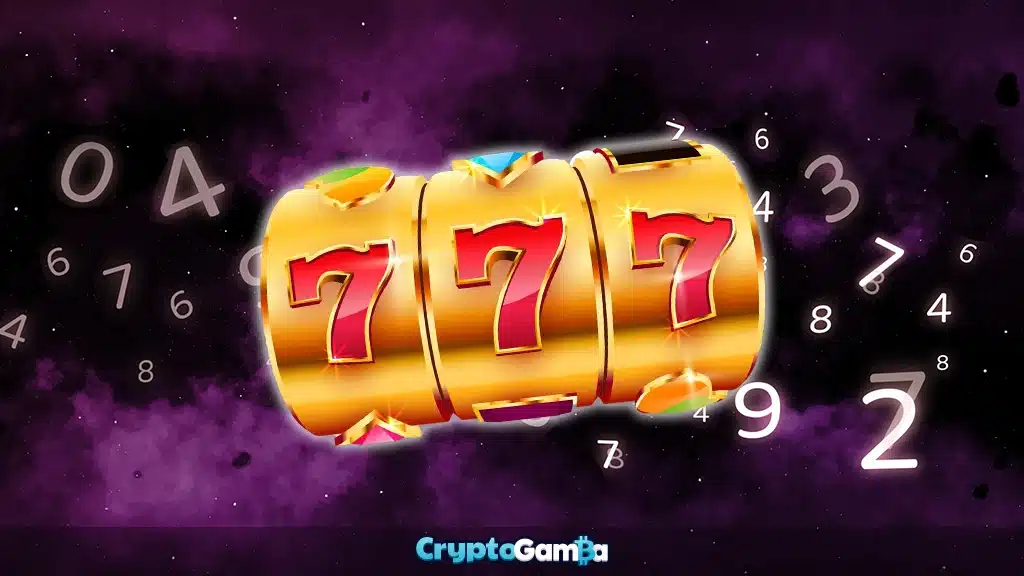Provably Fair Technology vs RNG: Are They the Same?
Reputable crypto casinos face a big challenge in the modern era – proving that their games are fair and outcomes are not predetermined and tampered with. To achieve this, they use all sorts of security measures and strengthen their reputation with multiple types of software. The goal is to reassure existing and new players that the games are not rigged.
However, many casinos also use fancy technological terms to confuse players who are not technologically savvy. In our Cryptogamba guide, we cover RNGs and Provably Fair technology, their differences, and the importance of both to the player.
Provably Fair Technology
The only way online casino gambling works legitimately is if the games are not rigged and the wins are not tampered with. To achieve this, casinos offer certifications of provably fair technology. To ensure that there is no manipulation of the game outcome, crypto casinos have provably fair algorithms for their games, which are prominently represented on the website.
This technology gained popularity in 2017 and slowly became the predominant source of trust for crypto gambling sites. It uses an encryption algorithm much like the one in the Bitcoin network. Each piece of data is turned into a 256-bit hash value, making it impenetrable and unable to be manipulated.
How Does It Work?
Using cryptographic techniques, Provably Fair technology ensures that the games are independently verifiable and that randomness is guaranteed. In addition to this, the relevant data is accessible to players, providing complete transparency.
The technology works by using 3 variables:
- Player Seed: Before anyone starts playing, they generate a player seed, which is a unique number.
- Server Seed: The game also has a unique number called server seed. It is kept hidden to prevent anyone from cheating.
- Nonce: It is a number that increases with every bet made. Its purpose is to ensure that each game round is unique.
These three variables work together to ensure the game outcome is completely secure. The server seed we mentioned above is being hashed or turned into a series of characters. A player receives the hashed seed before the game starts.
When a player makes a bet, the player seed is combined with the server seed. These two, together with the nonce, determine the outcome of the game using complex algorithms, and the results cannot be tampered with. After each game, the server seed is revealed and can be checked against the hashed versions to ensure they match. If they don't match, a player has proof that the game was unfair.
What Are Random Number Generators
A random number generator is a piece of software installed as a small chip that ensures the randomness of casino games. They ensure that all online casino game outcomes are fair and random. It also ensures that the casino operators cannot tamper with the games. There are two types of RNGs:
- True Random Number Generator – Also known as TRNGs. They never follow a standard pattern and ensure unpredictability by relying on numbers that cannot be predicted. It can sometimes be slow because it requires physical hardware to implement.
- Pseudo Random Number Generator – Also known as PRNGs. It is an RNG algorithm that seems random but always starts with a set fixed value known as the seed number. Two popular algorithms used in the PRNGs are the Linear Congruential Generator and Mersenne Twister.
How Does It Work?
RNGs also rely on mathematic algorithm technologies to generate random numbers. The generator always begins with a value known as a random seed or seed number.
It is a small chip that generates these numbers every millisecond. With each spin or bet on the game, the RNG picks a number and links it to an outcome based on the game's rules. If the number matches the game outcome, the player wins.
RNG's legitimacy is proven by independent lab testing, which is often shown alongside the certifications on the casino website.
Provably Fair Technology vs RNGs: The Similarities
Both PFT and RNGs have the same purpose – to prove fairness and transparency and ensure casino players that the game outcomes are random and untampered with. Both have a prominent role in strengthening the reputation of crypto online casinos and building trust in the brands.
Provably Fair Technology vs RNGs: The Differences
Although they serve a similar purpose for the same end goal, there are a few major differences between RNG and PF technology:
- Transparency verification – With PF technology, each individual player can check the game outcome himself, whereas with RNG, they have to trust the testing lab.
- Use of crypto technology – PF technology heavily relies on cryptographic techniques like HMACs, seeding and hashing, whereas RNGs are not necessarily tied to cryptographic methods, but they can be.
- Fairness assurance – The fairness of the games in RNGs can only be confirmed through an external audit, whereas with PF, players can verify it themselves.
- Manipulation – PF technology offers full accountability and transparency and minimizes the chances of game outcome manipulation, whereas RNGs can be manipulated if they are not audited or implemented correctly.
Final Thoughts
Both Provably Fair technology and Random Number Generators at online casinos aim to ensure fairness, but they have many differences. We can surely say that while both are important, provably fair technology should be preferred by players as it uses cryptographic blockchain technology that is virtually impossible to tamper with.





